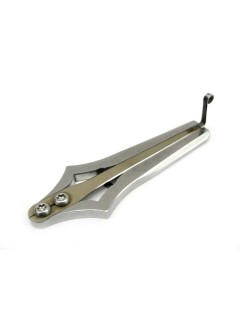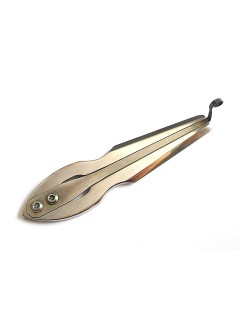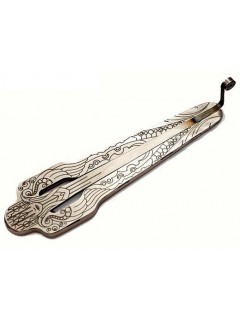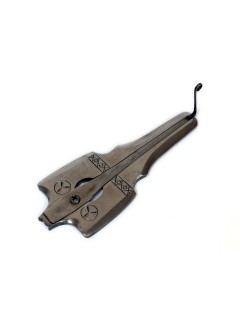15 most often mistakes when playing the jaw harp. (Part 1)
Playing the
jew's harp can give you unimaginable sensations. With a skillful approach, you
can dive into the inner space so deep that you can feel the vibration in
literally every cell of your body. Perceive yourself as a vibrating substance
that is inextricably linked with the vibrations of the surrounding world.
Such experience
can transform your existence on all levels.
But there are typical mistakes that can cut you off from these feelings forever. And sadly, they are made by almost all jawharpers.

1. Lack of
support.
Regardless
of whether you are standing or sitting, you need to constantly feel contact
with the surface. The sensation of body weight should be present as a constant
background during playing. Otherwise, you fly away, completely immerse yourself
in fantasy, and not really feel what is happening to you.
Constantly
keep in mind how your weight is on the surface, be it a chair or the floor. All
movements that you will perform with the jew's harp, and all breathing actions
should start from this basic sensation.
2. Curved back
Even a
slight slouching leads to disruption of natural biomechanics. As a result, it
is difficult for you to play for a long time. Your resonator, i.e. body, much
worse copes with its mission. The sound is noticeably depleted. Your
respiratory system is not working well and your muscles are not working well.
Playing in this way, you only exacerbate the habit, forever cutting yourself
off from the sensation of a sounding body.
It is
necessary to stretch out in a straight line from the coccyx to the crown of the
head and keep this tension for the entire duration of the game. Then the body
will sound, attention will be tuned in the right way, and breathing will become
strong and dynamic.
3.
Squeezing the jaw harp with your fingers
Most novice
jaw harp players mercilessly grab the instrument, squeezing it with their
fingers, like a dog grabs a bone. Their fingers begin to turn white due to
insufficient blood flow, and the tongue clangs against the arms of the jaw harp.
This approach becomes a methodological error that blocks receiving feedback
from the holding hand. Since the jew's harp vibrates, the holding hand must be
a continuation of the instrument. Its task is to transmit vibration further
into the body so that a full fusion with the instrument occurs.
Focus on relaxing
the holding hand, all effort should go to pressing the jaw harp towards your teeth.
And then the jew's harp will become a natural extension of your body.
4. Tucked
shoulders
Your
shoulders must be relaxed and lay in their natural position, arms must have no
tension as well they just hang as if they are on strings. Otherwise you are
causing tension in the cervical spine, which will spread further and further
throughout the body and this will lead to loosing the sensitivity of the sound
wave in the body .
5. Plucking
instead of hitting
Pulling the
tongue and letting it go is a catastrophic mistake, nullifying the rhythmic
potential of the instrument, also, part of the vibrations of the tongue is
extinguished, which means that the richness of the sound is lost.
A proper
hit and only it, should set the tongue of the jew's harp in motion. This means
that the moment of contact with the tab of the tongue must be reduced to a
minimum. And the whole mass of your wrist should come to this point. Then the
jew's harp will sound, and your playing will gradually begin to acquire more
and more new rhythms.
6. Neck
extended forward
Novice
players often lean toward the jaw harp extending their neck forward. As a
result, the channel through which the sound wave goes loses its natural shape,
and the sound becomes significantly poorer. This leads to a change in the
breathing pattern. The music becomes about the same as the sight of a harp
player with an extended neck - rather strange.
The chin
should be slightly tilted towards the neck, and the crown of the head is pulled
up like there is a string from your head going into the sky -this is the
position your neck should be in. Reach up, not forward. Then the
"pipe" through which the sound goes will be in a natural position,
and you will achieve maximum resonance.
7.
"Evil" lips
As if their
owner is angry with something and strongly squeezes the body of the instrument.
Accordingly, the role of the lips in sound production is not only reduced to
nothing, but also sharply limits the range of sound. Try to talk with pursed
lips - everything will immediately become clear.
The beauty
in the sound of the jew's harp appears only when your lips actively begin to
articulate sounds. They should look like the lips of beauties from fashion magazines
- slightly protruding and sensual. This will create a good base for automatic
lip articulation, which brings many subtleties and nuances to the instrument's
sound. Plus, breathing begins to work much more efficiently. It becomes denser
and more aware.
Related Products
"Sail" jaw harp by Dmitry Glazyrin
Glazyrin's new jew's harp model, "Sail" is significantly different from previous ones: not only by ..
47.00€ Ex Tax: 47.00€
"Arrow" jaw harp by Holniy
This jaw harp has a strong velvet and crackling sound, rich overtones throughout the spectrum. Thi..
75.00€ Ex Tax: 75.00€
"Aryan" jaw harp by Glazyrin
Beautiful budget jew's harp with engraving. The tongue is carved in the same plate covering the body..
43.00€ Ex Tax: 43.00€
"Saha" Gotovcev khomus
Beautiful figured jew's harp by Gotovcev portrays Yakut man in traditional clothes though for people..
160.00€ Ex Tax: 160.00€




